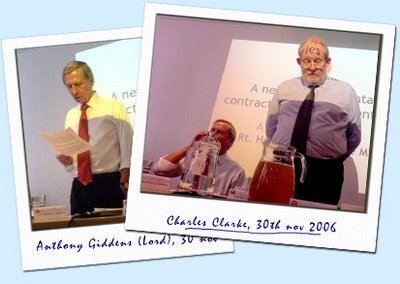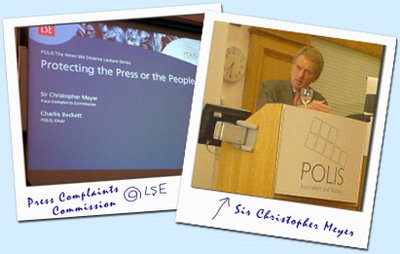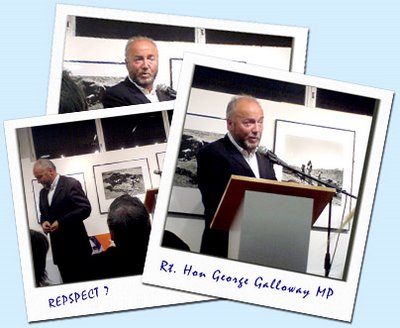
The IPPR Event today featured Rt. Hon. Charles Clarke MP and Lord Anthony Giddens, alongside the New Economics Foundation. Much discussion revolved around the recent 'Stern report' - a report on the environment by an economist. This point was emphasised further by both Clarke and Giddens: that green issues can hopefully be rescued from the Greens - who they deem too often anti-progress and dogmatic.
Clarke was in favour of green taxes, but only as part of a new 'social contract'. This is the idea that citizens must take up their full responsibilities, but on the basis of certain promises from the State. For example the State might improve public transport, but then expect people to give up their cars. Or it might ring-fence revenue from green taxes to fund green projects. I think this is a useful concept here.
I still feel though that all three speakers might be missing the point. All started with the premise that the Stern report shows conclusively that climate change is happening; that something must be done and that it will make a difference. Whether true or not (I'm yet to read it), the point is that the general public is not convinced. Can you blame them? Scientists assured us bird-flu would wipe us all out a couple of years ago. Before that, BSE was not transmittable to humans. And then it was. Occasionally they say asteroids are about to hit.
Maybe we've only avoided each of those by a whisker and in no small part thanks to the scientists. But the public perception is that they were just wrong. Until that changes, Clarke and Giddens may be arranging deckchairs on the titantic?
The Stern Report
Info and audio from IPPR here.

